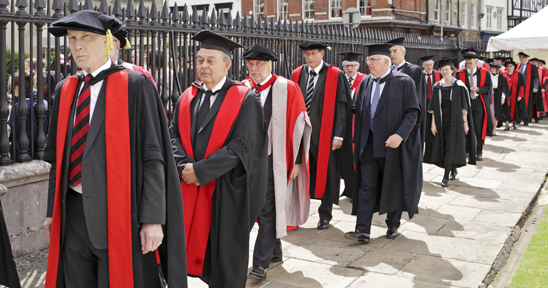
Membership
Membership of the Regent House is largely
comprised of academic and senior administrative staff of the University and
Colleges. From November 2022, the membership includes:
The Chancellor, the Vice-Chancellor, the High Steward, the Deputy High Steward, the Commissary, the Proctors and Pro-Proctors elected by the Regent House, the Orator, the Registrary, the Librarian, the Director of the Fitzwilliam Museum, the Esquire Bedells, the University Advocate, the Deputy University Advocates, and members of the Council in class (e) (i.e. external members of the
Council)
University staff who have retired or are about to retire from an appointment in the University which previously qualified them for membership, who have provided a written statement in support from their head of institution (see Joining the Regent House: recent changes)
Other University and College staff who qualify under Special Ordinance A (i) (f) (that is to say, people who hold certain qualifying University or College roles, including those who remain on the Roll under transitional arrangements)
Members’ rights
Members of the Regent House can
have an input in University matters in a variety of ways. They are entitled
to do the following:
Vote in elections of the Senate
- Attend Discussions and Congregations
- Ten
members can request that a topic of concern be brought forward for
discussion (see Regulation 1(b) of the Ordinance on Discussions).
- Fifty
members may initiate a Grace for submission to the Regent House
-
Twenty-five
members may initiate a proposal for the amendment of a Grace already
submitted but not yet approved
- Twenty-five
members may submit a written request to the Vice-Chancellor for a vote to
be taken on a Grace by ballot
- Ten
members can make known their views on questions which are to be the subject
of a ballot by issuing a statement as a fly-sheet for circulation
-
Use the University Combination Room (where the
Regent House met until the Senate House was built around 1730)
For more information on members exercising these rights, see the further information on taking part in University governance.